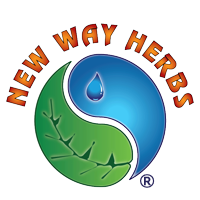Did Happy Hour Get a Little Too Happy?

Try These Herbs…

The science of hangovers is a complicated one, because there is not necessarily a single cause for your symptoms, and because everyone reacts differently to alcohol consumption. Though some factors will have more of an influence than others, choosing the right herb for a hangover may help, but largely depends on your own personal circumstances. And liquid extracts/tinctures are the most effective way to assimilate herbs in our system.
We all know that hangovers are primarily caused by drinking too much alcohol. Everyone’s symptoms are different, and for a rare few, the symptoms are non-existent. But for most of us, that is not the case. Whether you are trying to prevent a bad hangover, or to conquer your symptoms, here are some causes and some solutions.
What Causes of a Hangover?
Alcohol acts as a diuretic by blocking a naturally occurring hormone, Vasopressin, that controls fluid loss from your kidneys from being released from your pituitary gland. This causes your kidneys to flush out extra water and leads to dehydration.
Inflammation
When alcohol is metabolized in your liver, harmful by-products such as acetaldehyde, (a major toxic metabolite that is one of the principal culprits mediating fibrogenic and mutagenic effects of alcohol in the liver), react with your cells, causing inflammation
Restless Sleep
Because Alcohol prevents your brain from reaching the REM stage, it makes it difficult to awake fully rested. But the bigger problem is insomnia. After a few hours of sleep, alcohol may cause you to wake up and have a difficulty going back to sleep.
Congeners
Vodka is known to be the best alcoholic beverage for the most minimal hangover. And while Gin, light rum and white wine are close runners-up, brandy, red wine and Whiskey are notorious for providing bad hangovers, largely due to Congeners. But in all alcohol, Congeners are biologically active chemicals that exert an effect on the body or brain additional compounds that provide their distinctive taste and aroma.
After You Drink
Kudzu
Kudzu is used to detoxify the liver, particularly after the generous consumption of alcohol. Two compounds found in Kudzu appear to change the enzymes that break down alcohol in the liver.
Studies have shown that Kudzu can reduce both hangovers and alcohol cravings, and soothe the organs affected by alcohol. And today, Kudzu is being investigated as a potential treatment for curbing addictive behavior, including smoking.
Kudzu extracts have been used for 1000’s of years to treat alcoholism. A person who takes Kudzu will still drink alcohol, but they will consume less than if they had not taken Kudzu. This may be of help for heavy drinkers or alcoholics.
According to research, not only did the Kudzu extract help remove the initial strong cravings for alcohol but in most people removed all desire whatsoever during a four-week treatment. This is something that could be extremely helpful to the many people who are suffering from alcoholism today and have seemingly tried every option available.
Peppermint
Peppermint is one of nature’s oldest home remedies for gas, nausea, heartburn, cramping, bloating, flatulence, hiccups, stomachaches, and other digestive problems. And while Peppermint may reduce irritable bowel syndrome, it also cleanses the body, purifies the blood and clears skin disorders such as acne as well. Refreshing mint leaves also help to reduce nausea and headaches when applied topically. Mint leaves purify the blood, and the anti-spasmodic effect of this herb soothes muscle aches, as well.
Chamomile
Among the most popular herbal supplements in Europe, Chamomile extract is commonly used for its soothing effects without side effects. Chamomile has a long history of use as a tranquilizer because it naturally slows down the nervous system and is commonly used to soothe frayed nerves. If you suffer from insomnia, stress, and anxiety, during a hangover, this natural sedative acts as a tonic to help combat, depression, soothe your nerves and induce sleep.
Ginger
Have you ever reached for a glass of Ginger ale for an upset stomach, if so, you are on the right track! Hangover nausea is arguably one of the worst symptoms you can have. If nausea is a common symptom for you, try Ginger to settle your stomach.
Ginger is a time-honored remedy for upset stomach, indigestion, motion sickness, diarrhea, and cramps. This common food additive has also been used to help reduce fevers, relieve pain, reduce inflammation, and help remove toxins from the body. Ginger is effective for alleviating nausea and recommended as a first line of defense for hangovers.
Turmeric
Turmeric is said to possess antifungal properties, inhibiting yeast overgrowth, and appears to be an effective tonic that normalizes energy flow, enhances the immune system and improves overall good health. The problem is that Turmeric is poorly absorbed from your gut. But liquid preparations (tinctures and extracts) that utilize micellar technology have shown superior absorption.
For good digestion, Turmeric has a long and venerable history as a warming herb that stimulates the digestive tract. Its mild aromatic properties have been used for thousands of years to stop stomach irritation when not overused. It is also thought to stimulate the appetite.
Before You Drink
The best way to prevent a hangover is to drink less, but here are some herbs that may reduce, but not fully prevent hangovers.
Prickly Pear
Prickly Pear is believed to be effective for hangover relief from overindulgence in alcohol. In tests, the greatest improvements were seen in symptoms of dry mouth, nausea, and that ‘can’t stand the sight of food’ feeling. It may be particularly useful for nutrients, necessary for the health of the pancreas and liver, and to prevent fat and excessive sugars from entering the bloodstream. But Prickly Pear does not appear to ease the other symptoms, such as dizziness and headaches.
Interest in Prickly Pear is growing, due both to medical research and to the wonderful taste of the fruit. The pectin and mucilage component in Prickly Pear helps to relieve digestive problems, relieve stomachache and irritable bowel syndrome. Prickly pear is packed full of polyphenols which are antioxidants.
Korean Ginseng
The Korean’s believe that Ginseng has the capability to quiet one’s spirits, expel fears, brighten eyes, open minds, and improve understanding. Those who suffer hangovers may benefit from its detoxifying effects.
Used to stimulate the natural function of the body’s stress-response system, it has been used for the adrenal glands, to keep them from “burning out” during prolonged periods of stress. It is even thought that Korean Ginseng may reduce the stress of anticipated pain.
Ginseng is best known as an adaptogen bringing the body into balance. It has been found by many to help relieve fatigue and boost the body’s defense against stress. Apart from having none of the side effects associated with caffeine, Ginseng is known to have an effect on both energy and stamina, while having a soothing effect on the nerves.
Milk Thistle
Milk thistle is one of the most popular herbs used for a hangover. Commonly called Blessed Thistle, Marian Thistle and Holy Thistle, this herb improves your liver’s ability to filter toxins from the body, including excess hormones.
The liver is thought of as the ‘seat of anger’, that houses are darkest emotions, which is why liver problems are associated with resistance to change, anger, fear, and hatred. Regardless, if you are having problems with a sluggish liver, you are miserable. Milk Thistle liquid extract is a well-known medicinal herb that can play a key role in the relief of headaches, insomnia, difficulty awakening, difficulty in concentrating and poor memory, all symptoms of a hangover.
Other Things to Consider
Hangovers are a sign. It is your body letting you know that you have exceeded your alcohol limit. And while herbs may soothe, there are other factors that can be employed to prevent or reduce hangover symptoms.
Drink less alcohol, eat before you go out, and drink plenty of water to stay well hydrated to help prevent waking up with a bad hangover.
Before you try any herbs for a hangover, or any other malady, you should always understand any potential side effects, especially if you are taking other medication or have any medical conditions. And always consult your primary care giver before trying new herbs.
Tags: alternative, chamomile, ginger, hangover, health&herbs, herbs, korean ginseng, kudzu, milk thistle, prickly pear, tinctures, turmeric
Comments are closed here.